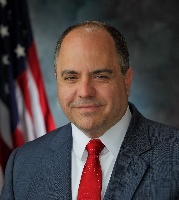Silver Lake Felony Lawyer, New York
Sponsored Law Firm
-
 x
x

Click For More Info:
-
Cohen & Bernstein, L.L.C.
1360 Clifton Ave #309 Clifton, NJ 07012» view mapCriminal Defense We’re In this Together!
We work hand in hand with our clients to ensure all of your questions are answered and progress through your legal issue is seamless.
800-978-7341
Not enough matches for Silver Lake Felony lawyer.
Below are all Silver Lake Criminal lawyers.
Raymond Paul Sciarrino
✓ VERIFIEDCriminal, Real Estate, Personal Injury, Traffic, Estate
Licensed: 22 Years
Sciarrino & Sciarrino, P.C. is a criminal law firm serving Rochester and the surrounding areas of Livingston County and Wyoming County. For more than ... (more)
Susan Kathleen Duke
✓ VERIFIEDCriminal, Divorce & Family Law
LLM, Masters of Law, International Taxation
I consider communication to be a key aspect of the lawyer-client relationship, which is why I return phone calls and emails promptly. My clients have ... (more)
Raymond Louis Sciarrino
Accident & Injury, Personal Injury, Criminal, Estate, Real Estate
Status: In Good Standing
Michael William Stivers
Landlord-Tenant, Divorce, Criminal, Car Accident, DUI-DWI
Status: In Good Standing
Marcea Clark Tetamore
Real Estate, Divorce & Family Law, Criminal, Bankruptcy & Debt
Status: In Good Standing Licensed: 33 Years
 Lindsay Bernstein Clifton, NJ
Lindsay Bernstein Clifton, NJ Practice AreasExpertise
Practice AreasExpertise


